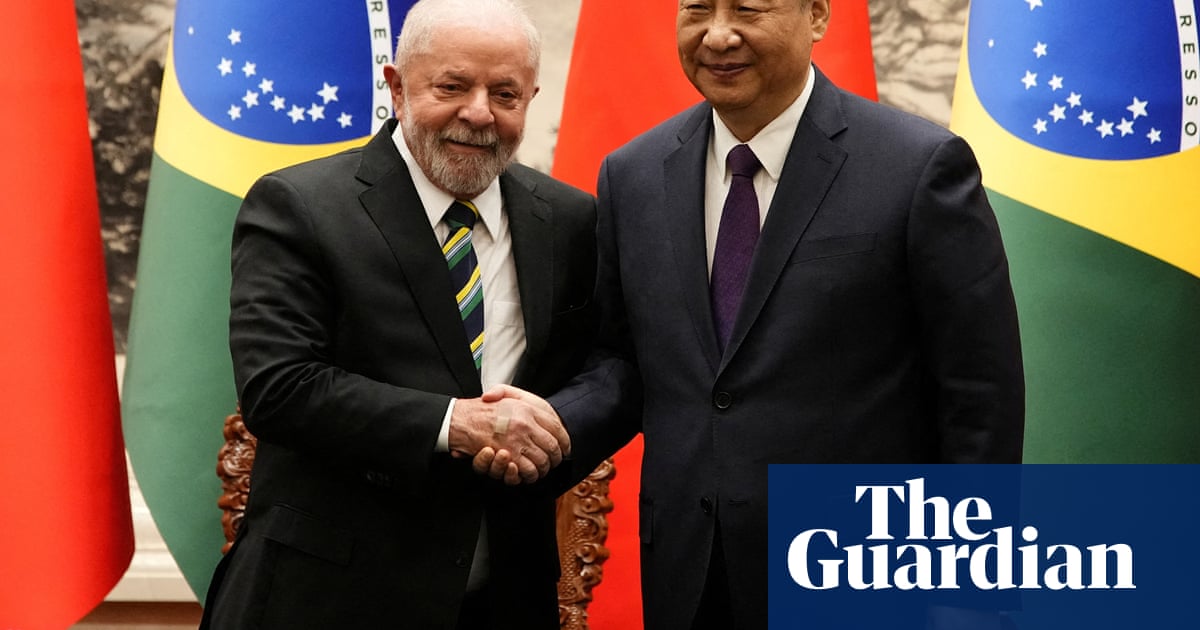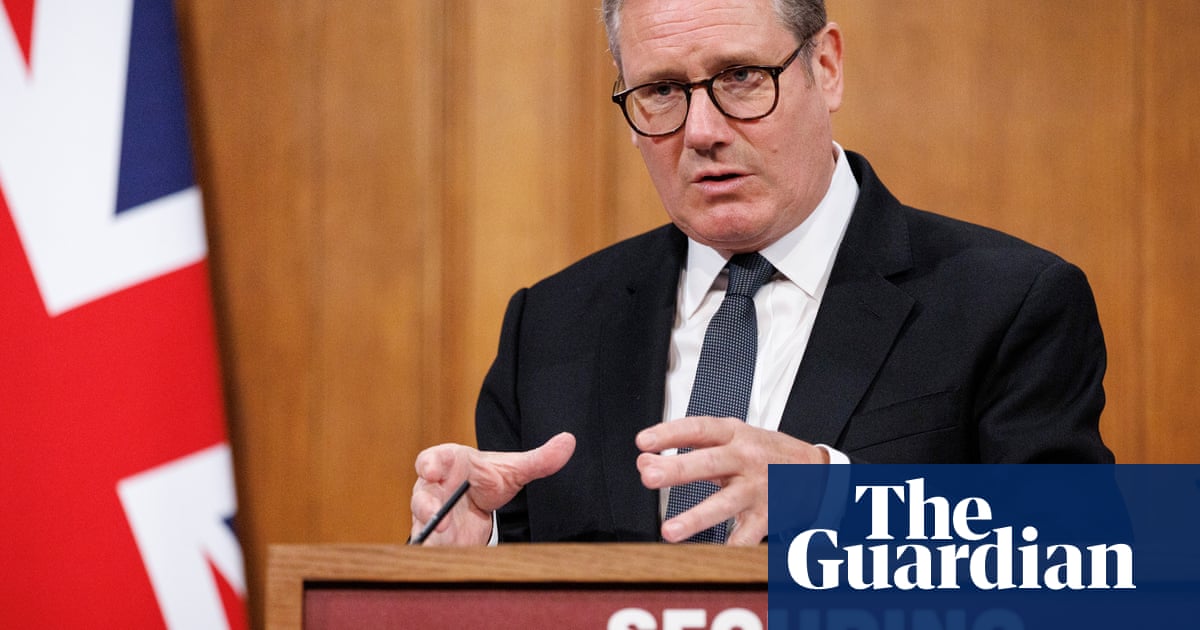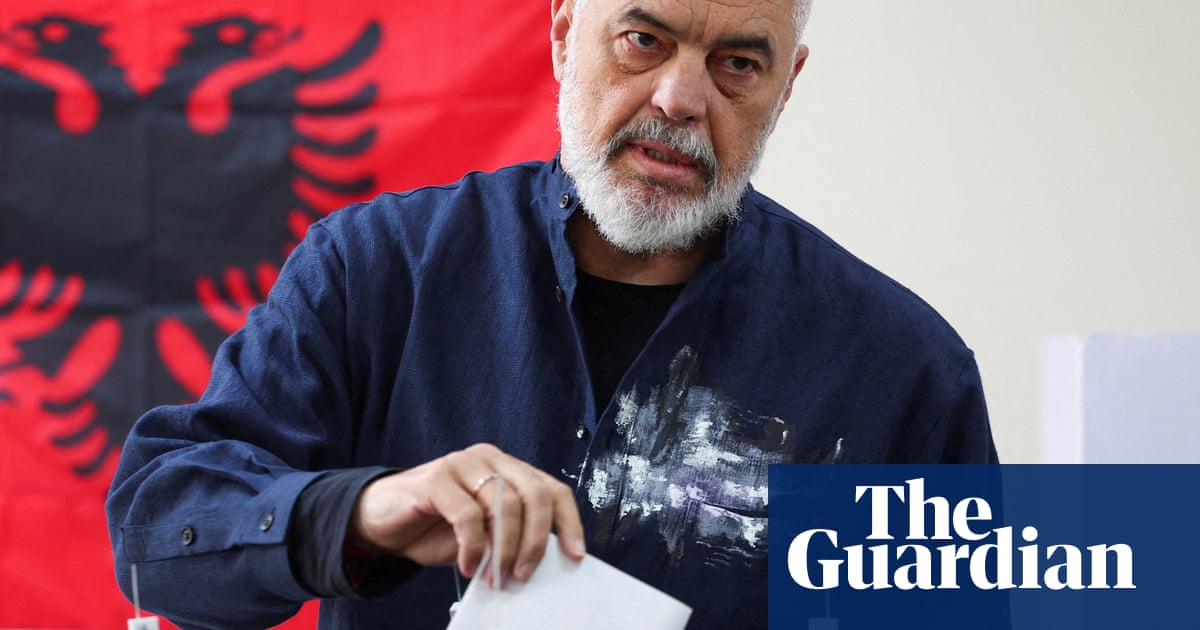By the time Steve Reed, the environment secretary, took to the early morning airwaves, the UK government’s response to Donald Trump’s Gaza plan had been carefully planned out: ministers would push back strongly, but only ever in a form of political code.
Reed gave no direct criticism of the US president or his shock announcement that the US would remove Palestinians from Gaza – a stance repeated as the day went on by Keir Starmer and various Downing Street spokespeople. But Reed said Gaza’s people “must be able to return to their homes and rebuild their shattered lives”.
Allowing Palestinians to do this would very clearly run contrary to Trump’s vow to “take over” war-ravaged Gaza and “own it”, a vow widely condemned as ethnic cleansing.
At prime minister’s questions, Ed Davey, the Liberal Democrat leader, invited Starmer to condemn the White House. The prime minister dodged that bit of the question but stressed the need for Palestinians to return to Gaza and rebuild, adding: “We should be with them in that rebuild on the way to a two-state solution.”
Talking in slight riddles is ubiquitous in politics, but Wednesday’s events were a particularly acute version of this phenomenon – one that is causing Starmer’s government, and to an extent the opposition Conservatives, increasing trouble.
The official No 10 and Foreign Office narrative is that Trump, and the US more widely, are key partners and close friends with whom Starmer and his team look forward to working closely over the coming months and years.
Some of this is very definitely true: the US is still, for now, a key ally. The rest is a mixture of hope and early experience, in that so far Starmer appears to have been able to get on quite well with the generally volatile and unpredictable US president.
But the official niceties deliberately mask an alarming reality that Starmer and his team must, and do, face up to privately. The Gaza plan is simply the latest example of a US administration that acts seemingly on whim and caprice, dealing with supposed allies not as partners but at best junior business partners, and at worst supplicants to a vindictive mob boss.
The UK has, so far, escaped the direct menace of tariffs or Trump’s more implicit threats about US territorial spread to places such as Panama and Greenland. But this could just be luck, and with the Starmer-loathing Elon Musk at the US president’s side, the luck might change.
Even if it doesn’t, it is arguably unsustainable to treat Trump as just another ally when he has talked openly about taking over territory belonging to another Nato member, Denmark.
Unsustainable or not, the business-as-usual pretence is here to stay. Starmer dodges direct questions on Trump’s antics, while his spokespeople, who face more persistent quizzing, hide behind refusals to “give a running commentary” or “discuss hypotheticals”.
The Conservatives appear less constrained, if also a bit more confused. More keen to yoke themselves politically to Trump, they have not yet even given qualified criticism of the Gaza plan, despite it going against almost every tenet of previous Tory policy on the issue.
Standing alone in this void among the three main Britain-wide Westminster parties are the Lib Dems, who are very open in criticising Trump and very happy to call for Starmer to do the same, in the knowledge this is a largely popular stance with Trump-disliking UK voters.
For now, the government must keep up the pretence. All diplomacy is necessarily a matter of polite make-believe and subject-changing. But in the era of Trump, this suspension of disbelief is being tested to its very limits.

.png) 3 months ago
34
3 months ago
34













































